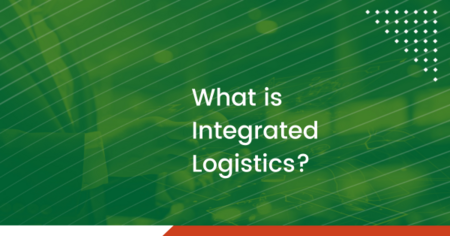What Is Integrated Logistics and Why It Matters in Modern Supply Chains
Integrated logistics, also known as integrated supply chain management, is a business approach that aims to streamline the entire logistics process from start to finish. It involves coordinating and integrating all activities related to the movement and storage of goods, including transportation, warehousing, and inventory management, to achieve maximum efficiency and effectiveness.
The goal of integrated logistics is to provide the right product, at the right time, in the right place, and in the right condition. This requires a comprehensive approach that considers all aspects of the supply chain, including suppliers, manufacturers, distributors, and customers.
Integrated logistics is a complex process that involves many different components, including transportation, warehousing, inventory management, and information technology. By integrating these components into a single system, companies can optimize their supply chain operations, reduce costs, and improve customer satisfaction.
Transportation
Transportation is a critical component of integrated logistics. It involves moving goods from one location to another, whether between different facilities within the same company or between other companies. Transportation can be done through various modes, including trucking, rail, air, and sea.
Effective transportation management is critical for optimizing the supply chain. This includes planning routes, scheduling shipments, and tracking shipments in real time. By having real-time visibility into the movement of goods, companies can make better decisions and respond quickly to any issues.
Warehousing
Warehousing is another critical component of integrated logistics. It involves storing goods between the time they are produced and the time they are shipped to customers. The manufacturer or distributor can own or operate warehouses through a third-party logistics provider (3PL).
Effective warehouse management is critical for optimizing the supply chain. This includes managing inventory levels, organizing the warehouse to maximize space, and implementing efficient picking and packing processes. By optimizing the warehouse, companies can reduce costs and improve the speed and accuracy of order fulfillment.
Inventory Management
Inventory management is another critical component of integrated logistics. It involves managing the flow of goods from suppliers to customers to ensure that the right products are in stock at the right time. Effective inventory management requires a deep understanding of customer demand, production schedules, and supply chain lead times.
By implementing an effective inventory management system, companies can reduce inventory while ensuring they have enough stock to meet customer demand. This can result in significant cost savings and improved customer satisfaction.
Technology
Information technology is also critical to the success of integrated logistics. It involves using software and other technology tools to manage the logistics process. This includes transportation management systems (TMS), warehouse management systems (WMS), and inventory management systems (IMS).
By using these tools, companies can automate many of the processes involved in logistics, reducing the risk of errors, and improving efficiency. They can also gather data on the logistics process, which can be used to identify areas for improvement and optimize the supply chain.
Partner With PLS Logistics
Integrated logistics is a business approach that aims to streamline the entire logistics process from start to finish. It involves coordinating and integrating all activities related to the movement and storage of goods to achieve maximum efficiency and effectiveness. By optimizing transportation, warehousing, inventory management, and information technology, companies can reduce costs, improve customer satisfaction, and gain a competitive advantage.
Partnering with PLS Logistics gives you access to our carrier network of over 55,000 regional and national carriers and our TMS, PLS PRO. PLS PRO enables companies to optimize their loads by highlighting the carrier terminal’s availability, origin, and destination. In addition, it provides accurate rates, along with the carrier’s contact information. It allows businesses to select a suitable carrier for their budget! So contact us today and let PLS Logistics be your next 3PL provider.

